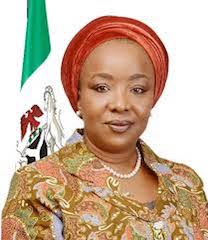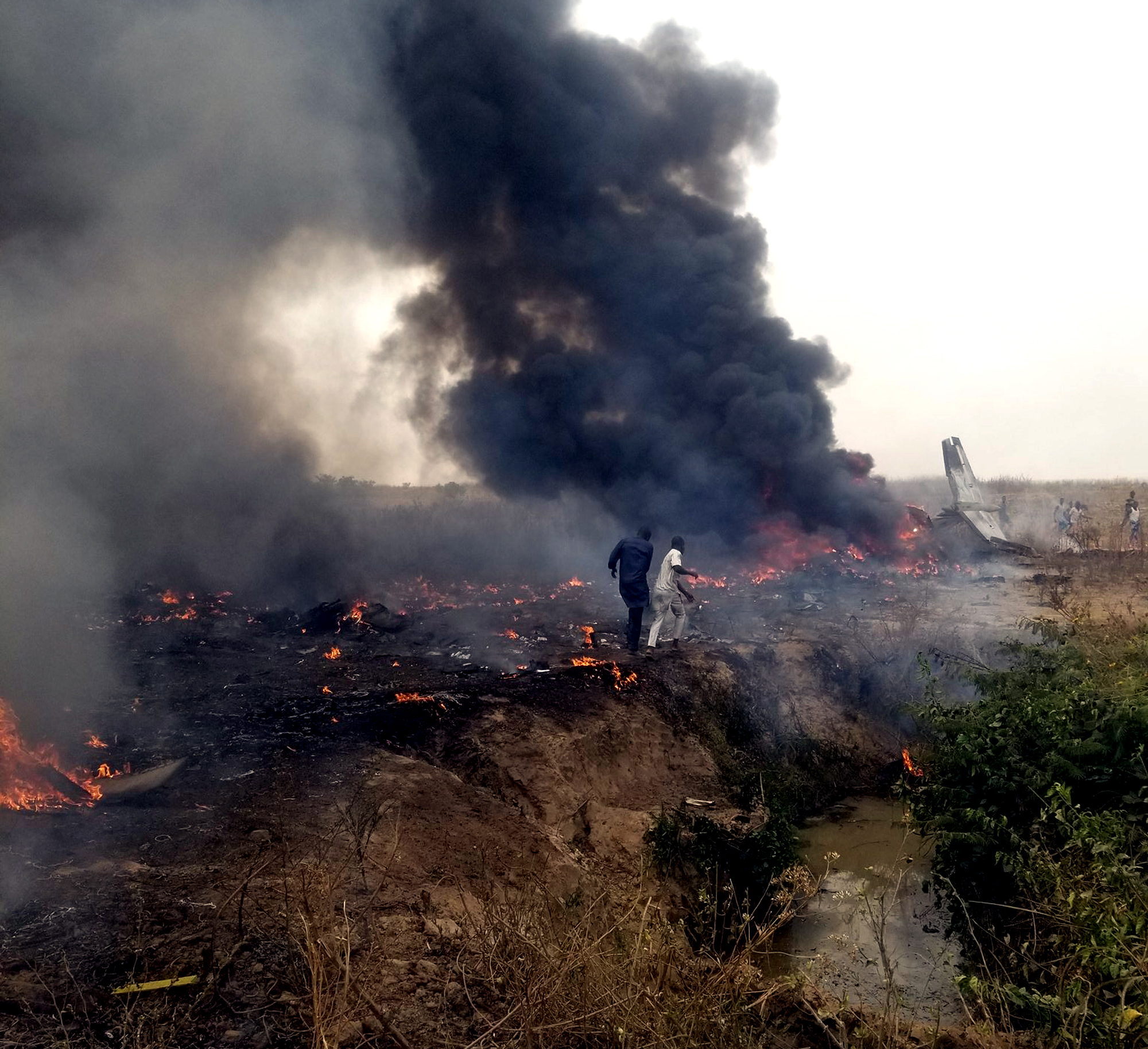Environment
Over 30,000 Lose Means of Livelihood to Climate Change- Ambassador

Ahmed Shehu, the Regional Coordinator, Civil Society Network of Lake Chad Basin says over 30,000 people have lost their means of livelihood to climate change which affected the Lake Chad Basin.
Shehu made this known in an interview with the News Agency of Nigeria (NAN) on the sidelines of a two-day workshop organised by the Nigerian Conservation Foundation with 20 NGOs from the North East.
The workshop, which was on natural disasters and how to manage risks of climate change, was held on Tuesday in Abuja.
He said that climate change had great effect on the people of the Lake Chad Basin hence the imperative of discussing the various issues responsible for the consequences.
“We are here to discuss these issues and see how we can resolve the problem of the effects of climate change as regards livelihood.
“The issue is all about the north east of the country where insurgence had existed for the past 10 years, and over 30,000 people have lost their means of livelihood.
“The issue of Lake Chad forms part of it, we have over seven million people that get their means of livelihood from the activities around the basin.’’
According to him, as a result of climate change, the Lake Chad is shrinking and this has made the people lose their means of livelihood.
Shehu said that most of these people were being recruited by insurgent groups because they did not have another means of livelihood.
“This meeting is very important at this time and I am happy we have gathered to mitigate the measures, plan, and then go back to the field and sensitise the people.
“So that they can be able to have a mitigation process on how we can provide the solution to the climate change and draining of the Lake Chad,” he said.
According to him, most of the problems are either natural or manmade.
“For the manmade, we can sensitise the people on how they can involve in mitigating the measures by not building on the waterways.
“Having eco friendly livelihood and not destroying the eco system, avoid bush burning and burning of trees to make charcoal; we as civil society can respond to the issues.’’
Shehu said that the water at the Lake Chad had been shrinking daily and over 70 million people who relied on it for their livelihood were being affected and at the risk of also losing their means of livelihood.
“And the insurgency contributed to it because people can no longer have access to the water because of trans-border issues, and it is causing drought, feminine and desertification.
He, however, appealed to the Federal Government to have a holistic approach, saying the government had only been concentrating on fighting insurgency and forgetting about the issue of climate change.
He said that the region had been neglected for a long time because of military rule of dictatorship and trans-border issues that affected the four countries around the lake.
Shehu noted that until every stakeholder was involved to find lasting solution there could be no end to those problems
Environment
First Lady Seeks Lasting Solution to Eradicate Environmental Pollution

The First Lady, Sen. Oluremi Tinubu has called for a lasting solution to eradicate environmental pollution caused by plastic wastes.
In her message to mark the year 2025 World Environment Day, with the theme ‘Ending Plastic Pollution’, in Abuja on Thursday, the first lady also advised people to curtail the way they consume food and drinks packaged in plastics.
“I join millions of Nigerians and the world in calling for urgent and united action to safeguard our environment.
Plastic pollution has become one of the most pressing environmental challenges of our time, affecting our health, our environment, and our future.“In Nigeria, we must rise to this challenge by changing how we consume packaged food items and how we dispose of plastic containers and bags.
“I particularly want to speak to our youths, the leaders of tomorrow, be it in schools or within our neighborhoods, each of you has a role to play in creating a cleaner, healthier and greener Nigeria,” she said.
Mrs Tinubu had recently promised to introduce environmental solutions clubs to schools through her NGO, Renewed Hope Initiative (RHI).
“I want to use this opportunity to introduce our students to two programmes that the RHI will be launching soon.
“First is the Environment Club for Secondary School Students and the Environment Society for Students in Tertiary institutions nationwide to help us clean up our environment and grow more trees.
“Second is the “Flow with Confidence” for our girls in rural communities.
“This programme is to provide one year’s supply of disposable sanitary pads to our adolescent girls to support them to remain in school during their menstrual cycle,” She said.
NAN further reports that some of the functions of RHI environmental clubs in schools would include raising environmental awareness; fostering social and life skills; empowering students to take action and promoting sustainable behaviours.
The clubs can also enhance critical thinking and creativity, encourage healthy lifestyles, and strengthen communities.
The club would encourage students to participate in various environmental projects, like tree planting, recycling, and garden projects, gaining practical experience and deeper understanding.(NAN))
Environment
Billboard accident: Abia Govt. to Offset Victims’ Hospital Bills – ABSAA Official

Abia Government says it will offset the hospital bills of the Aba Billboard accident victims.
Mrs Victoria Onwubiko, Managing Director, Abia State Signage and Advertising Agency (ABSAA) made this known on Thursday in Aba at the Salad Market entrance, the site of the accident.
A big billboard fell on some passengers in five tricycles in Aba on Wednesday, following a boisterous wind, killing one person and injuring seven others.
Onwubiko said the governor had given the necessary approval for procedures regarding the victims’ treatment without hindrances.
“So, we are glad there are not going to be any more deaths; from what we have seen, the victims in the hospital are recovering and doing well.
“We understand that about eight persons were involved in the accident; five are at the Abia University Teaching Hospital, two have been discharged and one is died,” she said.
Onwubiko added that the governor had sent his Chief of Staff to the hospital for the proper management of the victims at ABSUTH, Aba.
According to her, there is no hoping that any one of them will go to the court as the state government is doing everything to take care of them.
He said ABSAA would ensure such accidents did not reoccur noting that henceforth the agency would inspect every advertising site in the state.
“We are going to ask the owners of sites like this to give us the technical drawings with which they built their sites.
“If we don’t see them, the bill board will come down for them to redo it to ensure safety,” she said.
The ABSAA MD said every site, whether high or low, which is not sound, will go down.
Mr Chinedu Nwibo, an eye-witness and a vulcaniser for tricycle operators, said there were seven persons at the entrance of the Salad Market on that Wednesday when the accident occurred.
“We were inside a little makeshift shop I had set up for my work when the rain started on Wednesday.
“The wind was very boisterous and some of the tricycle operators went into their tricycles to stay for the rain to stop.
“No sooner had they ran into their tricycles than a big iron pipe used to hoist a billboard fell on them.
“One Destiny Uguru, 27, from Izzi in Ebonyi state died from the accident while seven persons sustained injury,” he said.
Nwibo called on the government to come to the aid of the victims especially by replacing their tricycles.
“The man that lost his life has an expectant wife and two children,” he said. (NAN)
Environment
FG, Partners Urged to Act On Rangeland Conservation

The Federal Government and partners have been urged to take decisive action to protect and restore rangelands, safeguard pastoralist communities’ livelihoods, and enhance climate resilience in dryland regions.
The call was made in a communiqué issued at the conclusion of the 5th International Conference on Drylands.
The conference, themed ‘Promoting Sustainability and Resilience of Rangelands: Present and Future Outlooks’, was organised by the Centre for Dryland Agriculture at Bayero University in Kano and took place from May 6 to 8, 2025.
The three-day conference brought together over 300 participants, including scientists, researchers, policymakers, development partners, and private sector representatives.
The articipants urged governments to develop and implement comprehensive, participatory, and evidence-based legal frameworks prioritizing sustainable rangeland management.
These frameworks should recognise, protect, and support traditional knowledge and practices of pastoralists, ensuring equitable access to land and natural resources.
Secure land tenure and fair resource governance are crucial for promoting peaceful coexistence and preventing land-use conflicts.
The conference recognised the critical role of women and youths from pastoralist communities in driving resilience and sustainability.
The conference also called for increased investment in capacity building, active participation in decision-making processes, and support for income-generating opportunities and sustainable resource development projects.
The conference emphasised the need to scale up public and private sector investments in climate change adaptation strategies, sustainable land management technologies, and diversified livelihood initiatives.
These investments should be complemented by demand-driven research and the promotion of innovations that integrate indigenous knowledge with modern scientific approaches.
The conference urged international development partners and organisations to align their resources with the conference outcomes and enhance regional and global cooperation, particularly on transboundary issues.
The participants also advocated deeper engagement with global initiatives such as the Vision for Adapted Crops and Soils (VACS) and the Africa Soil Initiative.
The conference concluded that the alarming degradation of rangelands, threats to pastoralist livelihoods, and fragility of dryland ecosystems demand urgent, collaborative, and sustained action.
The participants emphasised that achieving healthy rangelands was key to food security, ecological balance, and peaceful coexistence.
The conference brought together participants from 11 African countries, 13 Nigerian states, 17 academic institutions, and several international organisations.
It created a rich platform for knowledge exchange, policy dialogue, and regional collaboration.( NAN)




























